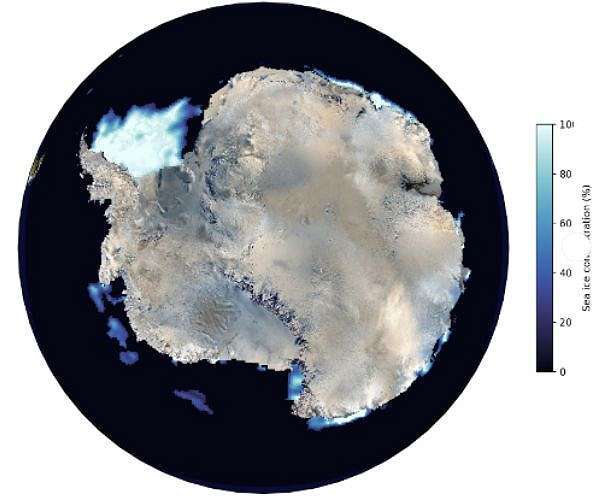23.07.2024

Research led by scientists at the University of Michigan reveals a substantial decline in the cooling power of sea ice, with the Arctic losing around 25% and the world losing up to 15% since 1980. This study utilized satellite data spanning from 1980 to 2023 to measure cloud cover and the solar radiation reflected by sea ice.
The researchers discovered that the reduction in sea ice's cooling effect is approximately twice the percentage decrease in the annual average sea ice area in both the Arctic and Antarctic. This enhanced warming impact aligns with the higher end of climate model predictions.
"When we use climate simulations to quantify how melting sea ice affects climate, we typically simulate a full century before we have an answer," said Mark Flanner, professor of climate and space sciences and engineering and the corresponding author of the study published in Geophysical Research Letters. "We're now reaching the point where we have a long enough record of satellite data to estimate the sea ice climate feedback with measurements."
Since 1980, the Arctic has experienced significant and consistent declines in sea ice's cooling power. However, until recently, Antarctic sea ice seemed more resilient, maintaining stability from 2007 into the 2010s and even increasing in cooling power during that period. This changed dramatically in 2016 when an area larger than Texas melted on one of Antarctica's largest ice shelves. The cooling power has not recovered since then, marking the weakest global sea ice cooling effect in the past four decades.
In addition to vanishing ice cover, remaining ice is becoming less reflective. Warmer temperatures and increased rainfall produce thinner, wetter ice and more melt ponds, which reflect less solar radiation. This phenomenon is most evident in the Arctic, where sea ice has become less reflective during the sunniest months. The study suggests this might also significantly affect Antarctic ice.
"The changes to Antarctic sea ice since 2016 boost the warming feedback from sea ice loss by 40%. By not accounting for this change in the radiative effect of sea ice in Antarctica, we could be missing a considerable part of the total global energy absorption," said Alisher Duspayev, doctoral student in physics and the study's first author.
The research team plans to make their updated estimates of sea ice's cooling power and climate feedback from less reflective ice available to the climate science community through a website that updates with new satellite data.
"Climate change adaptation plans should bring aboard these new numbers as part of the overall calculus on how rapidly and how widely the impacts of cryospheric radiative cooling loss will manifest on the global climate system," said Aku Riihela, research professor at the Finnish Meteorological Institute and co-author of the study.
The research was funded by the University of Michigan Rackham Graduate School and the Research Council of Finland.
Mark Flanner is also a professor of earth and environmental sciences at the College of Literature, Science, and the Arts.
Quelle: SD
